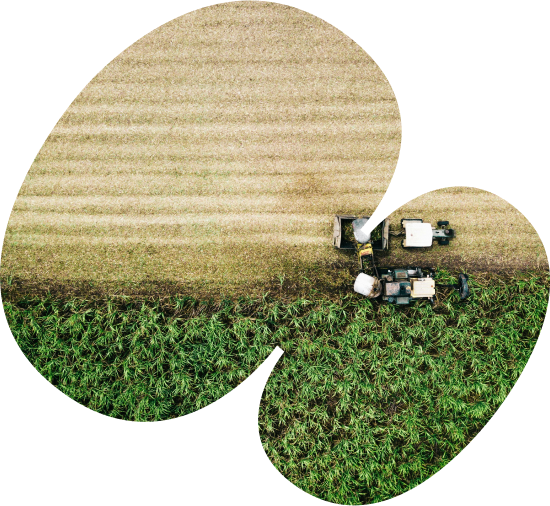Great For You & The Planet

Did you know
Sweets don’t just wreak havoc on your body. They affect the planet too.

Proteins that taste sweet are the solution
Sugarcane cultivation takes a massive toll on our environment, covering a whopping 65 million acres of land across the globe, impacting natural habitats and polluting the environment through the use of agrochemicals. We need an alternative.
Why it matters:
Sugarcane covers 65 million acres of land worldwide
More than 12 countries use 25% of their farmland to grow sugarcane
Sugarcane production often pollutes freshwater ecosystems with silt and fertilizers washed from farms
213 gallons of water are required to produce just one pound of refined cane sugar
Growers will need to cultivate almost 50% more land by 2050 to meet projected global sugarcane demand
For every 1% of sugar or sugar alternatives we replace:
525K
acres of land are saved
88B
gallons of water are saved
1M
metric tons of co2 are saved
Enter Oobli and the happiness protein
Proteins that taste sweet are the answer we’ve been looking for to rethinking the role of sugar and other sweeteners.

Protein, not sugar
Up to 5000x sweeter than sugar, sweet proteins are so sweet that just a tiny pinch can sweeten an entire chocolate bar or any other sweet food. And because they are proteins and not carbohydrates, we get the benefit for our bodies, as well as the planet.
Oobli sweet proteins are brewed through fermentation, a process which is as kind to the environment as it is to your taste buds. That means saving land, soil, water and carbon on a massive scale.
We’re not just changing the way we eat – we’re changing the way we think about the planet. This Earth Day, let’s rethink the role of sugar and say hello to a sweeter, greener future, one bite at a time.
Its okay to drool 🤤





